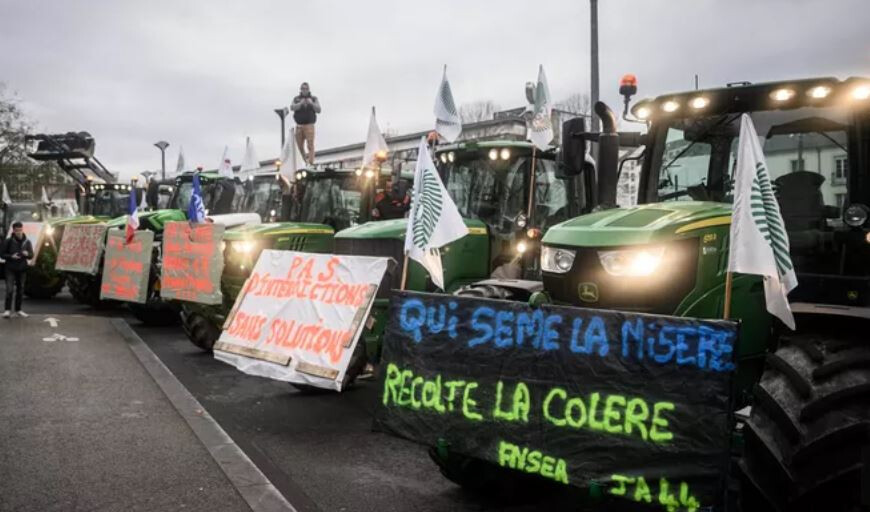
Paris, France – French farmers have escalated their protests against the proposed European Union (EU)-Mercosur Free Trade Agreement (FTA), fearing it will lead to unfair competition and undermine their livelihoods. The demonstrations, which began on November 18, have seen farmers blocking roads and engaging in other forms of civil disobedience.
The Mercosur trade bloc, comprising Brazil, Argentina, Paraguay, and Uruguay, has been negotiating an FTA with the EU for over two decades. While a deal was reached in 2019, its ratification has been delayed due to opposition from several EU member states, particularly France.
The proposed FTA would eliminate tariffs on 90% of goods traded between the two blocs. French farmers are particularly concerned about the impact of increased imports of agricultural products from South America, such as beef, sugar, and poultry. They argue that the influx of cheaper goods from Mercosur would undercut their own production and exacerbate the challenges they already face, including climate change and rising production costs.
"We cannot accept the import of products that do not meet our European environmental and social standards," said Arnaud Rousseau, president of the French National Federation of Farmers' Unions (FNSEA).
The French government has also expressed reservations about the FTA, with Prime Minister Michel Barnier stating that France cannot accept the agreement in its current form. Other EU member states, including Poland, Austria, and Italy, have also voiced their opposition.
The protests in France come amid a broader debate within the EU about the balance between free trade and the protection of domestic industries. While the FTA with Mercosur is seen as a way to boost economic growth and strengthen ties with Latin America, critics argue that it could have negative consequences for European agriculture and the environment.
As the EU continues to grapple with the challenges posed by globalization and climate change, the fate of the EU-Mercosur FTA remains uncertain. The protests by French farmers highlight the complex trade-offs involved in negotiating international trade agreements and the importance of balancing economic interests with social and environmental concerns.
[Copyright (c) Global Economic Times. All Rights Reserved.]






























